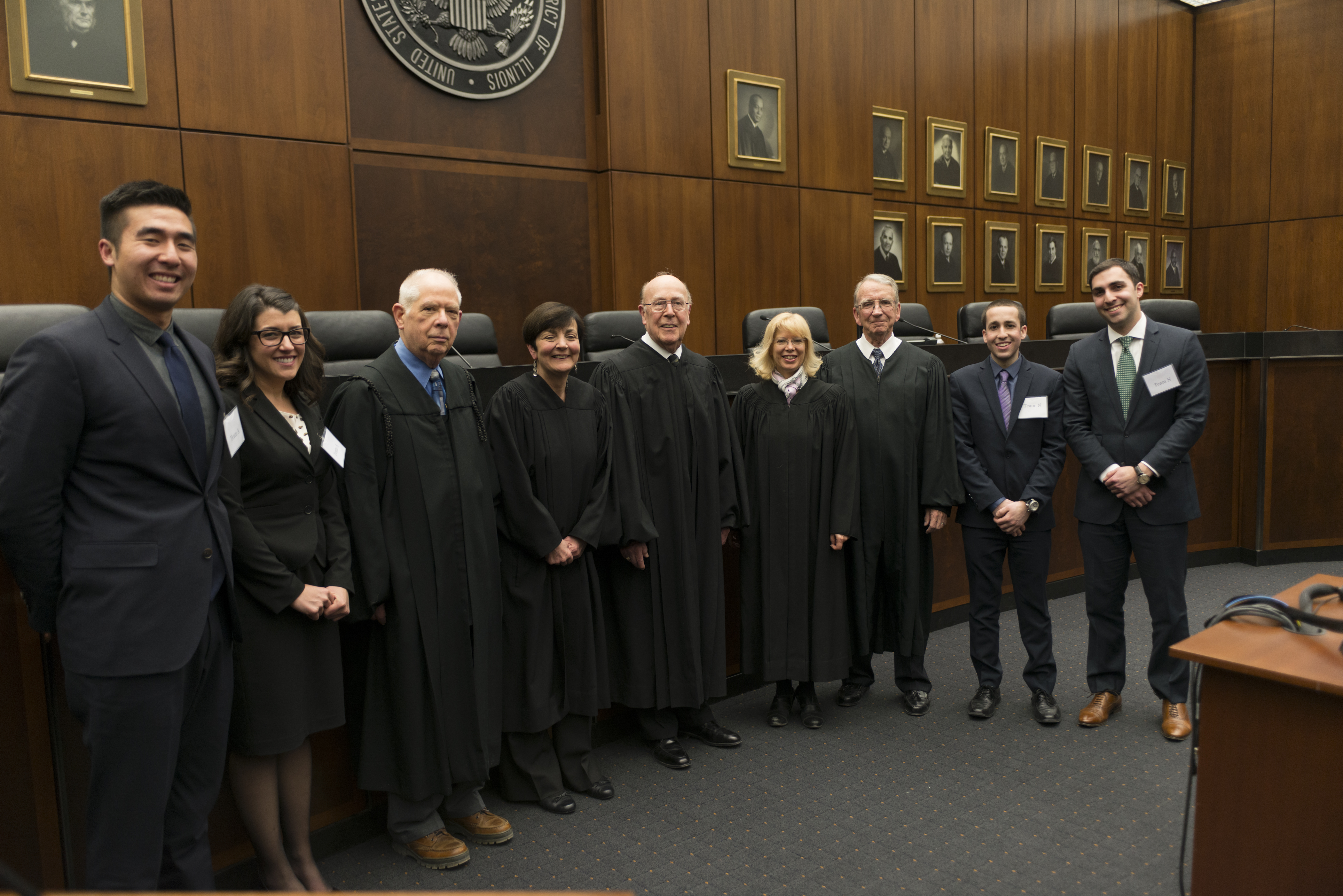Twenty-six teams competed in DePaul's Sixth Annual National Cultural Heritage Law Moot Court Competition on February 27 and 28, an unprecedented number of participants for the yearly event. The heightened interest moved this competition into a higher tier, said Lubna El-Gendi, director of student affairs and diversity at DePaul University College of Law, noting that teams were awarded more points for participating.
The National Cultural Heritage Law Moot Court Competition is held at the
Everett McKinley Dirksen United States Courthouse, and allows students to compete through oral and written advocacy in the field of cultural heritage law. This dynamic and growing legal field encompasses several disparate areas: protection of archaeological sites; preservation of historic structures and the built environment; preservation of and respect for both tangible and intangible indigenous cultural heritage; the international market in art works and antiquities; and recovery of stolen art works. This year’s problem focused on constitutional challenges to the Visual Artists Rights Act of 1990 (VARA), which protects visual artists' moral rights of attribution and integrity. The problem addressed both a First Amendment and a Fifth Amendment challenge to VARA.
The competition attracts teams from law schools with top-ranked appellate advocacy programs, as well as those with art law programs, and this year’s competition featured teams from 19 different law schools across the nation. Local law schools participating included Chicago-Kent, John Marshall and Northwestern. University of California, Hastings College of Law won the championship round, with the Benjamin N. Cardozo School of Law awarded second place. Students from the University of North Dakota, Northwestern, George Washington University and George Mason also received competition awards.
"I was really impressed by the enthusiasm of the judges and all the competitors," El-Gendi remarked. "It was apparent that both the judges and the competitors put in a lot of time delving into the issues raised by the competition problem. Throughout the competition rounds, I heard some very interesting and insightful questions from judges and many creative arguments from competitors."
Over forty DePaul students participated as competition volunteers, serving as either assistant bailiffs or bailiffs. DePaul students also served on the Competition Board, helping to organize the Competition. Over 80 attorneys participated as judges, including over 20 DePaul alums and numerous renowned cultural heritage law experts from across the country.

The panel for the championship round included Senior Judge William J. Bauer, of the 7th Circuit Court of Appeals; Judge Paul Joseph Kelly, Jr., of the 10th Circuit Court of Appeals; Judge Mary L. Mikva, of the Circuit Court of Cook County, Chancery Division; Judge Warren Wolfson, former Illinois Appellate Court judge, and Judge Linda Wilde, retired from the Superior Court of California.